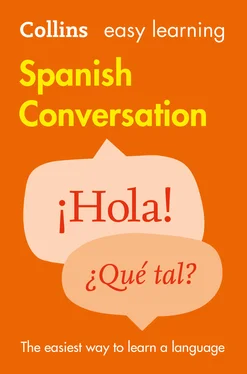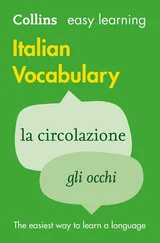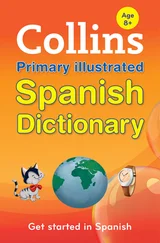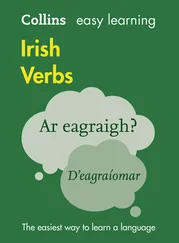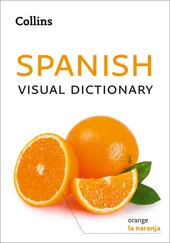As you’ll see in the first example above, in Spanish you say ver a alguien. For more on this use of a, see here.
In English, to talk about the future we often say I’m going to . Spanish works the same way. To say that you’re going to do something, put voy a( I’m going to ) or vamos a( we’re going to ) before the verb. voyand vamoscome from the verb ir. For more information on ir, see here.
| Voy atelefonearle. |
I’m going tophone him. |
| Voy adecirle que no puedo ir. |
I’m going totell him I can’t come. |
| Vamos adecirles que vengan un poco más tarde. |
We’re going totell them to come a little later. |
When organizing things with people you know, you can use ¿Qué te parece si…?( Will it be all right if…? ) to ask if something suits them. parececomes from the verb parecer( to seem ).
| ¿ Qué te parece sicenamos a las nueve? |
Will it be all right ifwe have dinner at nine? |
| ¿ Qué te parece site llamo la semana que viene? |
Will it be all right ifI phone you next week? |
| ¿ Qué os parece sinos vemos más tarde? |
How aboutmeeting up later? |
To ask somebody if they would prefer you to do something, use prefieresor prefiere(depending on whether you speak to them as túor usted)with queand the verb in the subjunctive. For more information on the subjunctive, see here.
| ¿ Prefieres quequedemos en el centro? |
Would you ratherwe met in town? |
| ¿ Prefieres quequedemos otro día? |
Would you ratherwe met another time? |
| ¿ Prefieres quepase a recogerte? |
Would you ratherI came to collect you? |
| ¿ Es mejorinvitar también a las parejas? |
Would it be better toinvite partners as well? |
| ¿ Es mejoravisarte antes de pasar por allí? |
Would it be better tolet you know before dropping in? |
| ¿ Es mejorllamarte por la noche? |
Is it better toring you in the evening? |
| ¿ Estamos de acuerdosobre la fecha? |
Are we agreedon the date? |
| ¿ Estamos de acuerdoen dónde nos encontraremos? |
Are we agreedon where to meet? |
| ¡ De acuerdo! |
Agreed! |
¿LO SABÍAS?
¡Vale!is used to accept or to agree: ¿Vamos juntos? – ¡Vale!( Shall we go together? – OK! ).
SAYING WHAT YOU HAVE TO DO
To say that you have to do something in Spanish, you can use tengo que( I have to ) followed by the infinitive.
| Tengo quehacer una llamada. |
I have tomake a phone call. |
| Esta noche tengo quequedarme en casa. |
I have tostay in tonight. |
| Tenemos queestar allí a las ocho en punto. |
We have tobe there at eight o’ clock sharp. |
To say that you have to do something in Spanish, you can also use debo( I must ) and then the infinitive. debocomes from the verb deber. For more information on deber, see here.
| Esta noche deboirme temprano. |
I mustleave early tonight. |
| Debodecirle que no puedo ir. |
I musttell her that I can’t come. |
| No debesllegar tarde. |
You mustn’tbe late. |
To say that you should do something, use debería( I should ) and then the infinitive.
| Deberíallamar a Ana. |
I shouldcall Ana. |
| Deberíairme ya. |
I shouldbe going now. |
| Deberíasvenir a visitarnos. |
You shouldcome and visit us. |
¿LO SABÍAS?
As you’ll see in the first example above, in Spanish you say llamar a alguienfor to call somebody . For more on this use of a, see here.
These are some of the questions you are likely to be asked by people you meet, and some of the comments they might make.
| ¿Es la primera vez que vienes a España? |
Is this the first time that you’ve been to Spain? |
| ¿Cuánto tiempo hace que estudias español? |
How long have you been learning Spanish? |
| ¿Te estás enterando de la conversación? |
Are you following the conversation? |
| Habla usted muy bien español. |
Your Spanish is very good. |
| ¿Hablo demasiado rápido? |
Am I speaking too fast? |
| ¿Prefiere que hable en inglés? |
Would you prefer it if I spoke English? |
| ¿Quiere que repita lo que he dicho? |
Shall I repeat what I said? |
| ¿Quiere que hable más despacio? |
Do you want me to speak more slowly? |
| Me puedes tutear. |
You can call me tú. |
| ¿Nos tuteamos? |
Shall we call each other tú? |
| ¿Cuánto tiempo vas a estar en Madrid? |
How long are you staying in Madrid? |
| ¿Te gusta Sevilla? |
How do you like Seville? |
| ¿Vienes por aquí a menudo? |
Do you come here often? |
| ¿Estás aquí con amigos? |
Are you here with friends? |
| ¿Estás casado? |
Are you married? |
Lifestyle Tips
• When you want to talk to people that you either don’t know at all, or don’t know very well, the way to say you is usted. Nowadays, younger people in Spain tend not to use ustedin this way, however it is always still used in Latin America.
• People who work together every day usually say túto each other, but it’s always safer to wait a little before taking that step, especially with older or more senior colleagues. Many people don’t like to be called usted, because they think it’s too formal. They will usually suggest you call them túby saying: puedes tutearme( you can call me tú) or nos podemos tutear( we can call each other tú). If you think that the other person will be more comfortable using the túform, you can make the first move and ask: ¿Nos tuteamos?( Shall we call each other tú ? ).
Читать дальше
